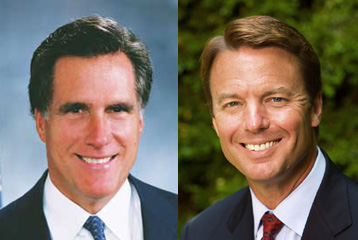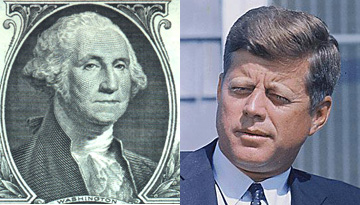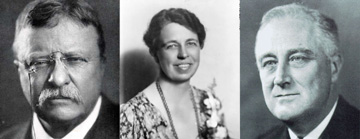This morning I want to re-visit “identity politics” and why I hate it. But first, I want to clarify again what I mean by the term.
The Wiki definition of “identity politics” is “political action to advance the interests of members of a group supposed to be oppressed by virtue of a shared and marginalized identity (such as race, ethnicity, religion, gender, sexual orientation, or neurological wiring).” That’s fine as far as it goes, but there’s a critical aspect of IP that this definition leaves out. And that is the tendency of IP activists to care and work passionately only on behalf of the marginalized group with which they share identity (hence the name, “identity politics”).
Why is this a problem? It’s a problem because the end result is a balkanization of advocacy groups that compete with each other for donations and attention and sometimes even work against each other. And that end result is one of the reasons the Right has been able to dominate American political discourse for the past quarter century or so.
I witnessed this splintering in the 1970s. Back then what was left of the old New Deal coalition broke apart, partly under pressure from the antiwar and various “New Left” liberation movements and partly because large numbers of whites allowed themselves to be race-baited into voting Republican.
The New Deal coalition had sustained the Democratic Party and constituted its soul for four decades. It was a broad, if flawed, coalition that successfully promoted progressive policies (see, for example, the Great Compression). Granted, by the early 1970s this coalition had gotten rigid and old and was not responding well to the challenges of the times. The time was ripe for a political realignment, in particular one that included minorities and women.
But when the New Deal coalition broke up, it left a huge vacuum within the Democratic Party, and the antiwar and various liberation movements did not form a new coalition to step in to fill that vacuum. Instead, young activists all too often remained in self-absorbed Identity Politics enclaves.
And divided, we were conquered.
In the 1970s, as the New Deal coalition was crumbling, a number of wealthy conservatives like Richard Mellon Scaife began to build the media and political infrastructures that have dominated U.S. politics since the 1980s. While too many progressive activists remained on street corners handing out xeroxed fliers for a narrowly focused cause du jour, a new right-wing coalition came together to dominate mass media and to drive their issues relentlessly.
And with no big coalition to support it, the Democratic Party had to turn to moneyed interests and corporate donors to get the funds to win elections. More and more, the Dems became indistinguishable from the Republicans. Progressives effectively were banned from power.
Fast forward to the 1990s. Bill Clinton won two elections not by challenging the Republican Power Machine but by finessing it. It was a remarkable personal performance that left the right-wing power infrastructure intact and did nothing to restore the Democratic Party’s lost soul.
I don’t fault him for that, because at the time Clinton was up against something that was, in its way, a lot more powerful than the presidency. Given the political culture and circumstances of the 1990s, his popularity and effectiveness were powerful testimony to his unique political skills.
But, ultimately, if we’re going to create a society and government that genuinely are open to progressive ideas and policies, the political culture has got to change and the right-wing power infrastructure has got to be pushed back hard. I don’t believe that was possible in the 1990s. Now, I think it is possible. Thanks to the colossal failures of the Bush Administration, and the new progressive infrastructure made possible by the Internet, we have an opportunity to effect broad, systemic change in American politics that will help all progressive causes.
This is an opportunity that must be seized now. A door is open now that might be closed to us by the next election.
Today, many of us are catching our breath hoping the Dem nomination battle really is over so that the general election fight can begin. But these past few months I’ve been dismayed at how quickly so many of us fell back into the old Identity Politics, equality for Me but not for Thee, patterns. Once again, we’re forming circular firing squads.
As a generic choice I don’t much care whether the First President Who Is Not a White Man turns out to be a black man or a white woman, or for that matter a woman of color were one running this year. When I look at senators Clinton and Obama, my questions are which one of these two gets it? Which one sees the possibility of creating a new political culture friendly to progressivism? Which one is more likely to walk through that door?
And the answer I come up with is Obama. I cannot say whether he will succeed. He is human and imperfect, not political Jesus. But his words and background and the way he has run his campaign tell me he sees the opportunity that I see and will, at least, try.
However, I don’t believe Senator Clinton sees the opportunity. My belief is based in part on her performance in the Senate, which on the whole has been disappointing, and on the way she has run her campaign, which has been the same old “finesse (but don’t challenge) the Right and divide the Left” politics. All her formidable political skills mean nothing if she doesn’t see that open door.
Yes, electing Hillary Clinton would make a grand statement for feminism. But then we’d sweep up the popped balloons and confetti and go back to Old Politics Business as Usual. And nothing substantive would change. Maybe I’m wrong, but that’s how I see it.
Michelle Goldberg has a article at The New Republic called “3 A.M. for Feminism.” You should read the whole thing, but here’s a snip:
Hillary Clinton has lost the nomination, but some of her most ardent female backers seem unwilling to accept it. A strange narrative has developed, abetted by Clinton and some of the mainstream feminist organizations. In it, the will of the voters was thwarted by chauvinistic party leaders in concert with a servile media, and Obama’s victory represents a repeat of George W. Bush’s in 2000. It’s a story in which Obama becomes every arrogant young man who has ever edged out a more deserving middle-aged woman, and Clinton, hanging on until the bitter end, is not a spoiler but a feminist martyr.
This conviction, that sexism cost Clinton the nomination, is likely to be one of the more toxic legacies of this primary season. It is leaving her supporters feeling not just disappointed but victimized, many convinced that Obama’s win is illegitimate. Taylor Marsh, a blogger and radio host whose website has become a hub for Clinton fans, says she gets hundreds of e-mails from angry Democrats pledging not to vote for Obama. She’s started running posts from such readers under the headline DEMOCRATIC STORM WARNINGS. “I’m not saying that this is a huge voting bloc,” she says. “I’m just saying that there is a huge amount of talk and I’m convinced it’s a reality that needs to be addressed.”
Taylor — and let me say I’ve met Taylor and like her very much, in spite of, well, recent events — responded:
Michelle Goldberg’s subtitle couldn’t be more insulting: “Clinton dead-enders and the crisis in the women’s movement.” There’s enough anger and rancor. It doesn’t help. But not even progressives get it.
People just do not understand the rage.
I don’t understand the rage, and I’ve been as held back by sexism as much as most women my age, which is close to Taylor’s and Hillary’s age.
I’ve faced the harassment and double standards. I’ve watched incompetent men sail effortlessly up the management ladder while exceptionally competent women remained stuck in entry-level positions for year after year. I’ve had to train men to manage me who had half my experience. I spent years struggling with unequal pay while raising two kids by myself. I certainly understand being angry about that.
But, y’know what? People get shafted lots of ways. Lots of people other than women have good reason to be angry at the status quo. If we’re going to change the status quo, we need to stop shoving each other out of the way just to make statements. I’m done with making statements. I want change.
As I wrote a couple of days ago, equality by definition has no preferences. If you are fighting for equality only for your particular slice of the demographic pie, then you aren’t fighting for equality but for favoritism.
If we’re going to turn the nation in a more progressive direction, we must jettison Identity Politics and come together to work for Progressive Politics.
I know Senator Clinton complains that she’s been shoved out of the race. But in spite of a strong finish, she was mathematically out of the race weeks ago, and her “kitchen sink” dirty campaigning was only poisoning the water without changing the inevitable outcome. Further, the Florida-Michigan issue was nothing but a slick attempt by Clinton to pick up cheap votes, and the fact that Clinton supporters willfully fail to see this tells me they’ve got their eyes shut to reality.
You know what we’re really up against? Read carefully this opinion piece by Daniel Henninger at The Wall Street Journal.
The irony too bitter to swallow is that Barack Obama’s identity politics trumped Hillary Clinton’s identity politics. Put differently, what goes around comes around. …
… The hard version [of identity politics] introduced people, mostly college students, to an America partitioned into categories of race, gender, ethnicity and sexuality. The softer version has flown for 30 years under all sorts of euphemized banners – diversity, multiculturalism, celebrating our differences. Only one campaign is celebrating our differences this week. …
… After South Carolina, the campaigns accused each other of playing the race or gender card. Obama deflected this charge. “I don’t want to deny the role of race and gender in our society,” Obama said. “They’re there, and they’re powerful. But I don’t think it’s productive.”
I’m not convinced. I think Barack Obama is more inclined to interpret American life in the formal categories of identity politics than is generally thought, or even than would older “conventional liberals” like Al Gore or John Kerry. Legal theorists have been a main source of its ideas; it’s hard to imagine that Barack and Michelle Obama didn’t hear a lot about “marginalized constituencies” at Harvard Law School. Sen. Obama may not be so conventional after all.
Speaking last July about picking Supreme Court nominees, he said: “We need someone who’s got the heart . . . the empathy to understand what it’s like to be poor or African-American or gay or disabled or old – and that’s the criteria by which I’ll be selecting my judges.” This is the language of identity politics. It’s not just talk. It’s an ideology designed to produce . . . change. …
… John McCain by instinct, biography and upbringing is prone to see America as a common civic culture. The vocabulary of “unjust” class distinctions familiar to Obama is alien to the McCain worldview. Sen. McCain should think about this and figure out a way to talk about it. If Americans are going to affirm a president making appointments on the basis of race, gender, class and sexuality, they should know it in 2008, rather than 2009-2012.
To Henninger, any political activism that addresses the concerns of any demographic other than White Upper-Class Male is, by default, “Identity Politics.” White Upper-Class Male is the default norm that constitutes what Henninger sees as a “common civic culture,” never mind lots of us have been disowned by that “common” culture.
And as long as we keep ourselves divided into demographic splinter groups, and allow indulgent, self-centered anger to blind us to the bigger picture, Henninger wins.
[Update: I watched Senator Clinton’s speech this afternoon and thought it very classy. She did a lot to rehabilitate her reputation, and I hope the majority of her supporters can take her advice and support Barack Obama for President.]



